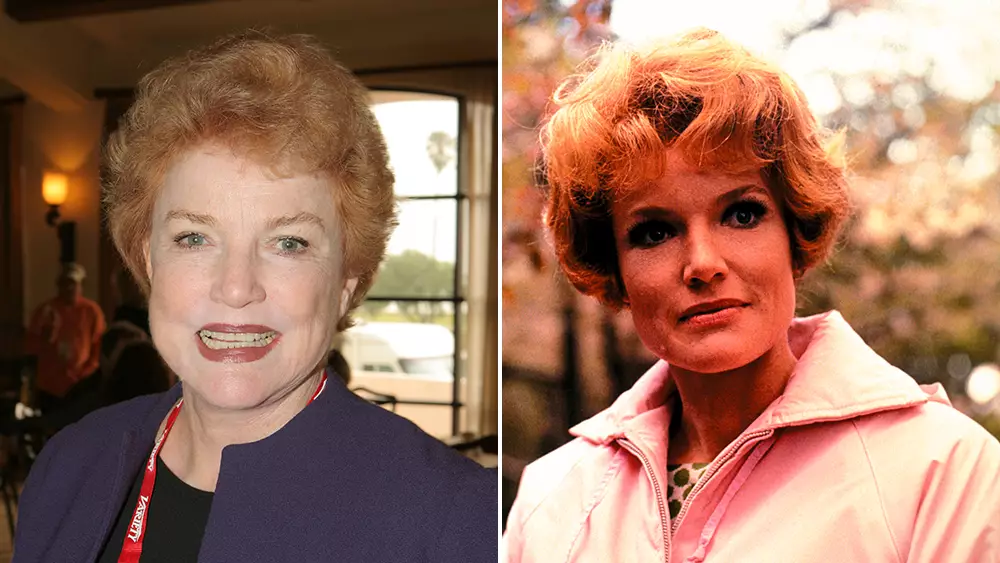Pippa Scott, an illustrious actress whose multifaceted career left an indelible mark on Hollywood, recently passed away at the age of 90 due to congenital heart failure. While her accomplishments on the silver screen garnered admiration, it is equally compelling to examine the environment that shaped this remarkable woman. Born to parents steeped in the entertainment industry in Los Angeles, Scott’s early life was intertwined with creativity and ambition. Her mother, a stage actress, and father, an Oscar-nominated screenwriter, established a foundation that would enable her to flourish both in film and theatre.
As Scott ventured to prestigious institutions like Radcliffe and UCLA, followed by the Royal Academy of Dramatic Art in London, she not only honed her artistic talents but also embodied a fierce determination to excel in an era dominated by male predecessors. It is this dual nature—performer and trailblazer—that positioned her as both an icon of her time and a precursor to the women’s movements that would follow.
Hollywood Stardom and Its Challenges
Scott’s career skyrocketed when she appeared in John Ford’s iconic film, *The Searchers* (1956), where she played Lucy Edwards, a character whose abduction becomes a pivotal plot point. While this role showcased her talent, it also served as a reminder of the often perilous situations women are forced into within patriarchal narratives. This irony is not lost when examining her roles throughout the decades, which often depicted women caught in perilous and marginalized positions.
Having appeared in a plethora of notable television shows like *The Twilight Zone* and *Perry Mason*, Scott’s extensive portfolio reflects the evolving landscape of Hollywood. However, it also raises questions about the industry’s treatment of female talent during a time when opportunities were scarce and often came at a price. The paradox of fame and marginalization invites a critical look at the societal structures that dictate not only the paths women like Scott must navigate but also the legacy that follows them.
A Humanitarian and Influencer Beyond the Camera
Beyond Hollywood, Scott’s legacy takes a compelling turn through her humanitarian work. In the ’90s, she founded the International Monitor Institute, demonstrating her commitment to human rights and the prosecution of war crimes. This shift from entertainment to activism signifies a nuanced complexity in her character; she was not only a performer but an advocate seeking to rectify the injustices she witnessed in the world. Producing episodes like “The World’s Most Wanted Man” reveals her unwillingness to remain passive in the face of human suffering.
Moreover, her marriage to Lee Rich, a power player behind beloved TV series such as *The Waltons* and *Dallas*, speaks to her capacity to connect and influence within both intimate and professional realms. The genuine bond they maintained until his death in 2012 indicates a personal life filled with resilience and compassion, traits that wouldn’t go unnoticed in her extensive body of work.
Pippa Scott’s multifaceted journey from a Hollywood starlet to a committed humanitarian leaves us with a profound reflection on the complexities of women in art and activism. Her legacy stands as a challenge to future generations, urging them to break free from traditional molds and create impactful narratives both on and off the screen.


Leave a Reply